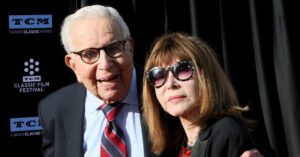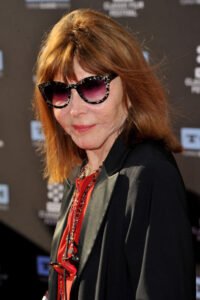1950s Bombshell Lee Grant’s Transformation Will Leave You Speechless!
Hollywood in the 1950s was a glamorous but harsh place, where powerful studios controlled the careers of actors and actresses.
Among the many talented stars of that time, one actress stood out for her beauty, talent, and unexpected fall from fame.
She was on the path to becoming a major Hollywood star, but suddenly, she was blacklisted, leaving people wondering what went wrong.

In the early 1950s, actress Lee Grant was considered one of the most beautiful women in Hollywood.
With her elegant features, graceful presence, and strong performances, she quickly caught the attention of big studios. Producers saw her as a future star and cast her in films that showcased her charm and acting skills.
Grant made her film debut in the 1951 movie Detective Story, starring Kirk Douglas. Her performance earned her an Academy Award nomination for Best Supporting Actress and the Best Actress Award at the Cannes Film Festival.
Audiences loved her, and critics praised her talent. Everything seemed to be going perfectly—until suddenly, it wasn’t.

Despite her early success, Grant’s career took a shocking turn when she was suddenly banned from one of Hollywood’s biggest studios.
The decision was unexpected and confusing. How could a rising star be shut out of the industry that once embraced her?
Rumors spread quickly. Some said she had argued with powerful executives. Others believed that her personal life had become a problem for the studio, which wanted complete control over its stars.
But the real reason was more serious.
Grant had spoken at a memorial service in 1951 for actor J. Edward Bromberg. In her speech, she suggested that the stress of being called before the House Un-American Activities Committee (HUAC) had contributed to his death.
Her words did not sit well with Hollywood’s powerful figures, and soon after, she was blacklisted.
During the Golden Age of Hollywood, studios had complete control over actors’ careers.
If a star refused to follow their rules, they could be blacklisted, their contracts canceled, and their opportunities taken away. Many talented actors lost their careers because they didn’t fit the image that studios wanted.
Grant, who had been on the path to superstardom, became another victim of this system.
For the next 12 years, her career suffered. While she later appeared in movies like Valley of the Dolls, Columbo, Shampoo, and Mulholland Drive, she struggled to find steady work in the 1950s and early 1960s.
The job offers stopped coming, and her name slowly faded from the spotlight.
Though her career was unfairly cut short, Grant’s beauty, talent, and performances continue to be remembered.
Hollywood may have moved on, but true movie lovers still see her as one of the most striking and underrated stars of her time.
Her story is a reminder of how unpredictable fame can be and how even the most talented actors can be silenced by forces beyond their control.
Today, in an era where actors have more freedom than before, her struggles highlight the dark side of old Hollywood—a world where talent wasn’t always enough to survive.
